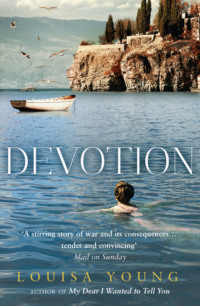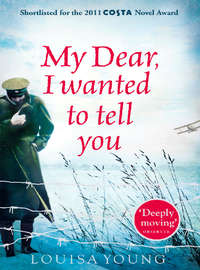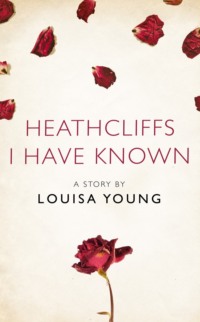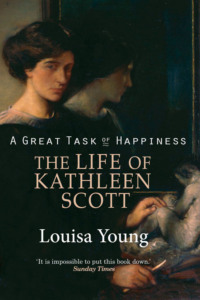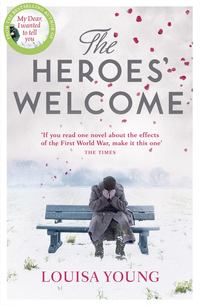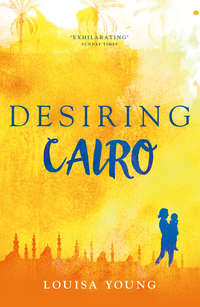
Полная версия
You Left Early: A True Story of Love and Alcohol
Before the Second World War, before he went into the Navy, Wayland studied music at Cambridge. When he went back to university after the war, he switched to history. His youthful compositions are still in that petit point piano seat. Instead of being a composer, his first dream, he became a journalist, a writer, and ultimately a politician, a Labour member of the House of Lords. My mother, Liz (Oxford and the Wrens) was his partner in politics, his backroom intellectual powerhouse. Their subjects were foreign policy, conservation, peace, the sea, the environment. Wayland’s mother was a sculptor, Captain Scott of the Antarctic’s widow.
These are the composers Wayland rated: Bach. Then Mozart, who added characters, then Beethoven, who became one great huge character, then Brahms and Schubert, who were just beautifully lyrical. Wagner? ‘A bicycle pump,’ he said. I liked Chopin and César Franck and Verdi: I knew they weren’t officially as good as the ones Wayland liked, but I could run around to them and be fleeing through the forest, hiding from bears, clambering mountains, rescuing and being rescued, riding unlikely beasts. I thumped and pirouetted up and down the sitting room (I did ballet classes – the plump one in a class of music-box fairies). Nobody minded the thumping but if I wriggled too much when sitting near my mother she would say: ‘You’re making me seasick.’ Liz’s mother drowned at the age of twenty-nine; six-year-old Liz, playing with her in Lake Geneva, was rescued. This shaped everything, but that is another story.
I’m seeing myself here aged about seven, when my parents were about forty. My brother and sisters are older than me. In the way of elder siblings, they went out more, and further, and in a different way: Beatles concerts, boarding schools, festivals, university, California, Afghanistan. Later, I had a baby sister. Robert always rather yearned for a sister – he thought if he had one he could look after her. He wondered if he could borrow one of mine, I had so many.
The Blüthner had been in that room for forty years, and was there another forty afterwards. My nephew has it now. My family was large, individually adventurous, but overall, steady.
Robert came on a school trip to London when he was eleven, and stayed in a hotel in Lancaster Gate – a hundred yards from where I lived. (He went on another school trip a few years later, an exchange to Amiens. He ran away to Paris and got into trouble.) We might have passed on the pavement as I set off for school, and he crocodiled off to the Tube station to go to the Planetarium. We were born one day apart at different ends of the country, but you could get a direct train from where I was born – Euston in London – to where he was, in Wigan. We were both conceived on holiday. One day a year – my birthday – I was his older woman.
The first time he came to my childhood home, he didn’t come in. It was 1978: after our encounter in Oxford, before Primrose Hill. I was recently back from my post-school year off adventures in India with a small array of revolting digestive illnesses, and had to spend the traditional few weeks in the Hospital for Tropical Diseases at St Pancras, and some time at home recuperating. Tallulah came to visit.
‘I can’t stay long, the boys are in the car.’
Which boys?
‘Simon and Robert.’
My bedroom was on the ground floor. I thought of the yellow line outside, and Simon’s little Renault 4, the only car owned by anyone we knew of our age.
Which Robert?
‘Lockhart.’
‘Oh, they can come in,’ I say, nonchalantly.
‘You’re not well enough,’ she said.
‘I am well enough,’ I said.
‘No you’re not.’
‘Yes I am.’
‘No,’ she said.
‘Yes,’ I said.
She didn’t bring them in. This occasion was one of the moments when the slippery crystal polyhedron of missed opportunities slips sideways and could, just might, have landed on a different surface. Robert didn’t know the details at the time, but later it became for him a moment when we might have got together. ‘You’d have been irresistible,’ he’d say. ‘In bed, all skinny from your illness, too knackered to give me any grief – we could have got together then. We’d have got married – and you’d have divorced me, of course, but then we’d’ve got married again and been happy and I never would’ve become an alcoholic …’ Our non-existent children were to be named after composers: Claudette, Frederica, Cesar and Sergei, for Debussy, Chopin, Franck and Rachmaninoff. Much as he loved Satie and Ravel, we drew the line at Eric and Maurice.
Tallulah doesn’t like this story, because it suggests he would only have wanted me then because I was thin and brown. I don’t see it that way. At her fiftieth birthday party, we formally forgave her for not bringing him in to see me. She said, ‘Actually, you do make rather a good couple’, and I felt it as a blessing. I thrilled like a seventeen-year-old to see our names written together on the invitation, even when we were well middle-aged. Public acknowledgement of coupledom. I was never the marrying kind and anyway Louisa Lockhart would be a terrible name – I can see Louisa Lockhart in a third-rate novel, scurrying over the storm-lashed moors, sodden shawl clutched round her after the Young Master done her wrong. Or writing light erotica. Or being an eighteenth-century fishing boat.
According to my diary, I went to his twenty-first birthday party, on 27 March 1980. ‘Jolly flirt with L’, I wrote in my diary. I have no memory of it whatsoever. And there is his name on the list for my twenty-first birthday party, a few days later. All the names are crossed out, in an ‘invitation sent’ or ‘def coming’ way, in a single straight line. His is crossed out in a cloud-formation zigzag of circling pencil, which continues into an arrow pointing to the top of the page. I remember that I cooked dinner for about ten people and then everyone else came afterwards. I made a veal thing where you rolled it up with an omelette inside, and ham, so when you sliced it it was striped pink and yellow, and I added lots of parsley so it could be green as well, deckchair stripes like my favourite trousers of that period. And a pile of meringues and cream. I had friends old and new from different areas of my disparate twenty-one-year-old life, and none of the dinner people, my nearest and dearest at the time, knew each other. I remember we had two bands – Sore Throat and The Arials – and Sore Throat’s roadie took all his clothes off and chased round the house trying to apologise to me for being naked, and Shane McSweeney hid the clothes up a tree. But I can’t remember if Robert came. So I can’t have loved him much then. The following year, only one sighting: ‘… in the foyer of the Wigmore Hall, listening to the pleasant strains of the first half of the programme, and the whispers and rustlings of the latecomers and ushers. The second half is Rob Lockhart …’
I had recently graduated, and was working as a lowest-of-the-low on the making of Britannia Hospital, the third of Lindsay Anderson’s trilogy of films which started with If … and O Lucky Man! It was filmed in the still-active mental hospital at Friern Barnet, where actors and mental patients mixed perhaps more than had been planned. One chap followed me about to give me ginger cake in a brown paper bag. I had a weakness for talented men with beautiful accents: Glaswegian Robbie Coltrane who slid across the floor of the cast bar on his knees and collided with my bum, which he bit; another of the actors, Welsh Bob Pugh, who read me Gerard Manley ’Opkins and played Van Morrison songs on the piano; history professor Norman Stone (also Glaswegian) who had taught me at Cambridge. I’d had it, forever, with Cambridge, with posh English chaps, dinner jackets, repression, arrogance, misogyny and fear faintly concealed behind perfect manners. The establishment. I was moving into my squat, busking, working as a barmaid, running round with deep-sea divers, Jamaican musicians, despatch riders; saving for New York, wanting to work in films, anything, anyone, but not that Chelsea banker quacking entitled educated ignorant money-making narrow-minded posh ungrateful world … It was in that mood that I ran into Robert at Emma’s party.
*
Tallulah came back from New York in 1986, and moved in with my friend Swift. We all, in our late twenties, became pals again. We were working hard. I got a mortgage on a one-room flat; I was a freelance journalist now, travelling the world for Marie Claire, correcting the spelling on The Sunday Times, riding motorcycles for Bike magazine, doing columns in the Guardian. Tallulah was running a publishing house. Swift was moving from magazines into the literary end of film. Robert had meanwhile come to London to study piano as a postgraduate, teach at Oxford, and play cocktail jazz in wine-bars to support himself as well as concerts on Radio 3, at Wigmore Hall and the South Bank. He had a girlfriend: kind, pretty, mickey-taking Lisette, who everybody liked. And his mother died. ‘Seeing her dying,’ he wrote, ‘aged 52, looking aged 80, deaf, blind, incontinent, was probably the most disturbing moment of my life.’ He retired from professional piano around then, unsure if it was because of his mother’s death or not, and started writing music for radio and TV, theatre, films and advertising. He was a musical director at the National Theatre, he triumphed in the West End and New York. He had his little thespian habits and nicknames: Serena McKellen for fellow Wiganer Sir Ian McKellen; Pierre Vestibule for Peter Hall; Pierre Ruisseau for Peter Brook. In 1986 he did the musical arrangements for a production of Arthur Miller’s The American Clock, and was extremely excited after meeting the author – mostly because of shaking his hand, and Marilyn Monroe. ‘I know where it’s been,’ he said, staring lovingly and disbelievingly at his own hand that had shaken the hand that had made love to the goddess. There was big pressure and scary deadlines, but he didn’t have to be on stage, and could therefore drink. That world brimmed with drink.
Being Terence Davies’ music director, on The Long Day Closes (1988) and Distant Voices, Still Lives (1992) and The Neon Bible (1995) drew him back to the North, and to his father. He had to conduct a choir of Liverpool schoolboys, singing in Latin. When he corrected their pronunciation one of them said to him, ‘Sir, sir, are you Latin?’ Oh the joy. As a Wiganer – or Cocchiite, he preferred, because it was both Latin and rude – he liked nothing better than mocking Liverpudlians (unless it was mocking people from Skelmersdale, or his default position in the south, épater-ing les fuckin’ bourgeois). He orchestrated the gorgeous version of ‘Love Is a Many Splendored Thing’, in the scene where they’re all in the cinema, crying. Years later I sat in the cinema, crying. I looked at those 1950s Northern people, so beautifully turned out, quoting lines from The Philadelphia Story, and thought, is that where he’s from?
When he told me how he had fallen out of someone called Nina’s window, I thought he and Lisette must have broken up (which they did several times) and felt, God help me, a little pang of jealousy. I wanted him to be falling out of my window, or at least trying to climb in it – and it wouldn’t have been nearly so perilous, as I was on the ground floor with a window directly on to the street, Jesus, there’d have been no risk at all, he certainly wouldn’t have impaled his arse on the railings.
*
His past is in boxes under his piano in my sitting room, for me to deal with, to rationalise or romanticise (which sometimes seem to be the same thing); to put in order, any order that can pass as orderly, so that thereafter it can be put away. I am in charge of his sheet music, his music manuscripts, his CDs, his cassettes, his dad’s LPs, his rehab papers, medical notes, autopsy report, boots, books, love letters from his girlfriends, letters to them that he never sent. ‘Dear Buttock’, he wrote, in 1981; ‘Dear Rectangle’. They break my heart. The older ones from Manchester and Nottingham, biro and lined paper; fountain pens and Basildon Bond like a granny, then brown Rotring ink and cartoon sunsets, speech bubbles coming from the picture of the queen on the stamp, or the cherub on the front. Postcards from Siena and San Gimignano, airmails from Ohio and California. Letters starting, ‘I’ve just put down the phone from our conversation but I can’t bear not to be talking to you still …’ Letters which stop and start over days: ‘I’m on the train now; sorry about the writing … I’m home now, it’s so cold … Just scribbling this at the bus stop …’ Funny letters, love letters. Haunting letters: ‘WHERE IS YOUR WARM BODY NOW?’ A lipstick kiss. A postcard showing a naked lady from behind, waist down, long legs in high heels crossed at the ankle to make a very elongated heart-shape, and on the back, in thick black felt pen: ROBERT JE VOUS ATTENDS AVEC IMPATIENCE. Incomprehensible letters: ‘Arms and legs! Arms and legs!’ And: ‘… I have written endless letters to you, but have abandoned all due to distress and muddle. There isn’t much to say anyway, other than what a fantastic and unforgettable adventure we had, despite our differences … If love isn’t worth fighting for it was probably not love in the first place but a mutual passion driven by intensity (of a volatile nature). Because to me love is about understanding and security as well as the sex and excitement which always features in the beginning …’
One from him, giving his phone number as 999. A photo of a girl with a teddy bear, aged about twenty, and on the back written: ‘Only one of these is your girlfriend’: she’s a film star now. Several have filled me with jealousy appropriate to the age I was at the time they were written: But I knew you then, why didn’t you want me? wept the ghost of me aged seventeen.
I don’t want to read them. They’re not mine. Yet here I am in charge of them, which is a damned odd sort of victory over time and the ghosts of love rivals who have long been living other lives.
And there’s something addressed to me: a printed invitation to a production of Woyzeck, which as it is in ‘the Newman Rooms’ and gives the date ‘Tues–Sat 4th Week’ must be to do with Oxford, which exists in its own chronological universe. I do look at that and think –1978? 1979? What if I’d gone?
I could identify about 80 per cent of the letters’ senders. I recognise their handwriting; I know the stories, the places, the timings. Tough, sympathetic curly-haired Beth who was my pal at school; Emma who I knew a bit at Cambridge; Jackie the violinist. I put them back in the boxes. All that love, all that youth. I take them out again. Put them back again.
It adds up to a chaotic record of a life which might have been lived differently; a map across which he might have traced a different, better, route. A map I was going to have to look at.
And, for a while, it was like getting a dose of him, after he was gone.
Конец ознакомительного фрагмента.
Текст предоставлен ООО «ЛитРес».
Прочитайте эту книгу целиком, купив полную легальную версию на ЛитРес.
Безопасно оплатить книгу можно банковской картой Visa, MasterCard, Maestro, со счета мобильного телефона, с платежного терминала, в салоне МТС или Связной, через PayPal, WebMoney, Яндекс.Деньги, QIWI Кошелек, бонусными картами или другим удобным Вам способом.




